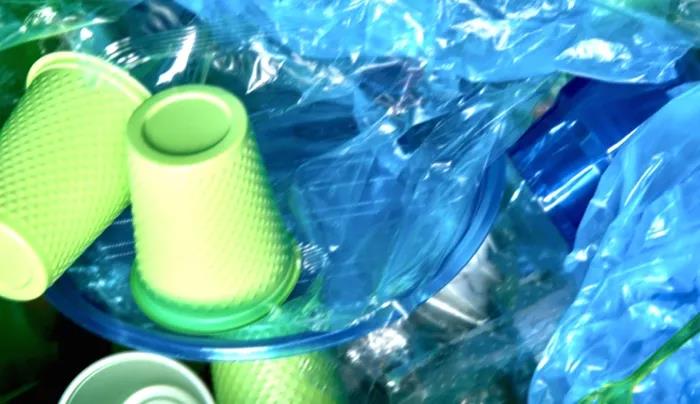The Italian legislature has issued a draft decree and accompanying report that will translate the EU Directive on Single Use Plastics 2019/904 (SUPD) into Italian law. On September 21, representatives of environmental protection associations, industrialists and consortia held a hearing. On September 22, the Italian government submitted the draft to the European Commission for review.
The definition of plastic in the draft decree does not include paints, inks, adhesives or plastic coatings that weigh less than 10% of the total weight of the product, because these materials are not their main structural components.
In order to achieve a quantifiable reduction in consumption of certain single-use plastic (SUP) products by 2026 in accordance with the requirements of SUPD, the Act is expected to adopt voluntary cooperation measures. For example, specific departmental plans and awareness-raising, as well as incentives for alternatives, rather than restrictive measures.
For companies that purchase reusable, biodegradable, or compostable (EN 13432:2002) alternatives for SUP products that are expected to ban or reduce consumption, the law will give a tax of up to 3 million euros per year from 2022 to 2024 credit amount (20% of the recorded cost of purchasing such alternatives, up to 10,000 Euros per year and beneficiaries).
The draft decree, in principle, foresees a restriction on placing the same product category as SUPD on the market, that is, a ban.
However, contrary to EU law, it provides exceptions for the following SUP products:
(1) Biodegradable and compostable plastics (EN13432 or EN14995)
(2) Exceptions for SUP products made with a renewable raw material percentage of at least 40% (60% in 2024)
(3) Under the following circumstances:
(a) When reusable alternatives to SUP food contact products cannot be used
(b) If used in a controlled environment, usually and permanently transport the waste to public collection services such as canteens and sanitation facilities
(c) When alternatives cannot provide any guarantees in terms of health and safety due to circumstances and local conditions
(d) Depends on the specific type of food or drink
(e) If a particular situation involves more than one person
(f) If the environmental impact is more serious than the one-time alternative, it is based on a life cycle analysis.
In April, the legislature instructed the government to incorporate SUPD into the Italian system and specified some key aspects that the government will follow.
These include exceptions to the ban on certain SUP food contact products, "gradual" restrictions, allowing SUP products made of biodegradable or compostable plastics to be placed on the market, and increasing the percentage of renewable raw materials.
Greenpeace Italy issued a report on the conversion of SUPD, warning that this exception clearly contradicts the directive, and it is reported that Legambiente, another environmental NGO, supports it.
Italy notified the European Commission of the draft, which means that it will not adopt the draft before December 23, 2021 (the so-called standstill period).
The Italian definition of plastic is clearly intended to protect, for example, beverage cups that are mainly made of paper but have a plastic lining or coating.
The European Commission rejected the call to explain SUPD in this way, including in the so-called scope guidelines of May 2021.
Certain exceptions for products made of bioplastics would clearly violate SUPD because EU laws passed with the participation of Italy also apply to “bio-based and biodegradable plastics. Whether they are derived from biomass or are designed to follow biodegradation over time”.
Like many other member states, Italy has violated EU law because it did not make the national rules required to comply with SUPD (ie, convert it) effective before July 3, 2021.
This transposition law may violate EU law.
Then, the task of the European Commission is to initiate infringement procedures. At the end of the procedure, the European Court of Justice can impose mandatory and/or punitive fees on Italy. However, unless the court finds that Italian law violates EU law and/or Italy is under pressure from the EU to modify it, Italian domestic rules will apply there, and within this scope are different from those of other EU countries.
The EU announced that it will develop a clear policy framework for biodegradable/compostable plastics
When the European Commission announced the “Guidelines for Disposable Plastics” on May 31 this year, it was clearly stated that it plans to formulate a policy framework for the use of biodegradable or degradable plastics in 2022. The framework is based on the assessment of the potential benefits of such plastics to the environment. And standards for the application of such plastics.
To facilitate the transition to a circular plastic economy, a clear policy framework is needed to use bio-based, biodegradable and compostable plastics. This will promote consistency in the formulation of European policies, strengthen environmental protection, reduce consumer confusion, increase investment certainty in the internal market, and encourage competitiveness and innovation.

The European Commission would like to hear your views on the roadmap policy framework for bio-based, biodegradable and compostable plastics published on the European Commission’s portal. The program is open for feedback until October 27, 2021 (midnight CEST).
This feedback will be considered to further develop and fine-tune the plan. The committee will summarize the comments received in a summary report, explaining how the comments will be adopted or, if applicable, why certain recommendations cannot be adopted.

